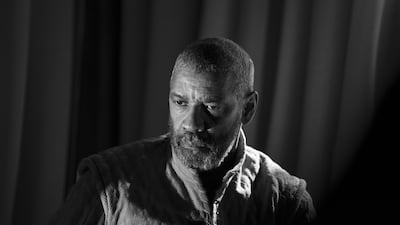Netflix’s decision to cast Oscar-winning African-American actor Denzel Washington as historic Carthaginian general Hannibal in an upcoming film has sparked heated debate in Tunisia.
Hannibal Barca was born in the third century BC, in Carthage, in the north of what today is Tunis.
Also a statesman, he commanded the forces of Carthage in battle against the Romans.
His descendants reportedly continue to live in Tunisia, and Hannibal is a celebrated national figure that the North African country takes pride in.
He has been also called one of history’s greatest military leaders for commanding the Second Punic War against the Roman Empire in 218 BC and occupying most of modern-day southern Italy for 15 years before getting pushed back to Carthage by the Romans.
One of the general's most famous feats, celebrated by historians and strategists alike, was his crossing of the Alps to fight the Romans during that conflict, with a force of infantry on horseback and in some cases riding elephants.

Netflix’s decision to cast Denzel Washington is being seen by some Tunisians as "a distortion of history" and a form of "cultural appropriation."
Critics say the move disregards historical fact due to the actor’s skin colour.
Historians generally agree that the Carthaginian general was of Phoenecian descent, originating from the Levant in the eastern Mediterranean region, yet his exact skin colour has never been determined.
Blogger and ancient Tunisian history expert Khadija Ben Mohamed said nothing has ever been confirmed about Hannibal’s outside appearance as his burial site remains unknown and his remains were never exhumed to carry out scientific tests, including about his skin colour.
“If we had found his tomb we would have been able to take samples to determine how he died, his facial features, his height and everything about him,” Ms Ben Mohamed told The National.
Most Mediterranean civilisation researchers agree that he was neither caucasian nor black, due to his Phoenecian descent, she added.
Ms Ben Mohamed said she understood the controversy surrounding Washington’s casting and said it would have been better if Netflix had consulted historians before making such a decision.
Hannibal has previously been played in a Hollywood production by Italian-American actor Victor Mature, in 1956.

“Obviously, they [western film industry] always take our history in the Arab world, Africa and North Africa as a mere reference only for the result to be based on their own projection of reality,” Ms Ben Mohamed said.
There may have been confusion about Hannibal's skin colour because Tunisia is known as a place where several global empires and civilisations have intersected, the historian added.
“They have not based their choice on any available research and just wanted to project their own political agenda at the expense of some historical accuracy.”
“They are just trying to project their own political problems,” Ms Ben Mohamed added, referring to the racial discrimination accusations that Hollywood continues to face.
“They are the ones who are racist not us.”
During a public hearing session with the Tunisian Minister of Cultural Affairs Hayet Guermezi, Member of Parliament Yassine Mami said it was necessary for the government to take a stand and prevent what he called "the risk of falsifying history".
But Ms Guermezi told MPs at the parliament’s public session on November 30: “It is a fiction film and it is their right to create whatever film they want.
“If it was a historical film of course we have the right to intervene but since it’s fiction we have no right or legal standing to stop them,” she added.
The Minister told the MPs that she understood Tunisians' special interest in Hannibal, for what he represents as a historic figure, but for her it was more important to convince Netflix to shoot some of the scenes of the upcoming film in Tunisia rather than trying to stop its production.


